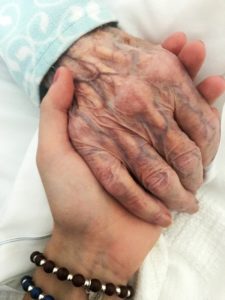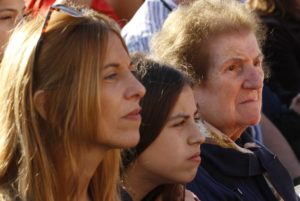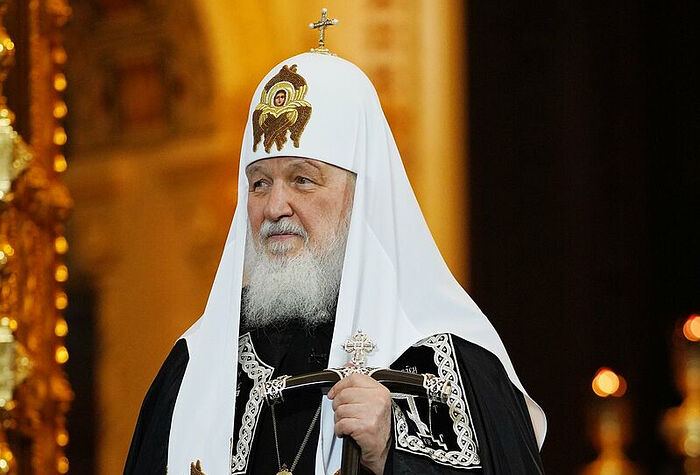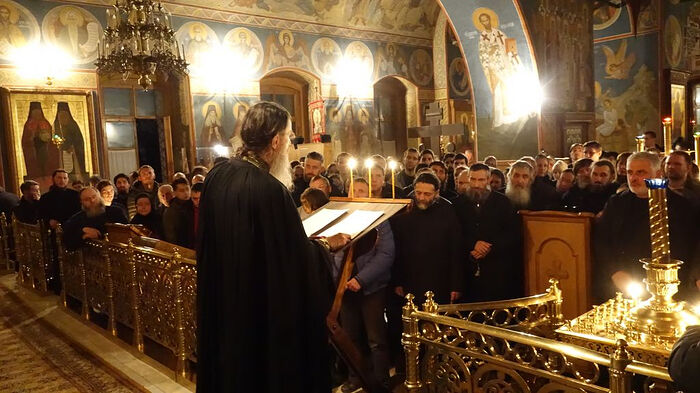 Photo: optina.ru
Photo: optina.ru
The first four days of Lent have passed, during which the Great Penitential Canon of St. Andrew of Crete was read at Compline. The Canon is a chord, a prelude, a tuning fork, by which we must attune our souls to a penitential, contrite, and Lenten mood. It is very important for us to keep the Canon sounding in our hearts throughout Lent, and it is no coincidence that on the fifth week the whole Canon will be read, and we will again enter into its depth with penitence.
What is Lent? Abstaining from chicken and TV? Forty days of “torment” without cheese and yogurt? An opportunity to lose weight? Or is it a much deeper, subtle, mysterious and special spiritual space?
Lent is an opportunity for us to escape from the deadening atmosphere of vanity, haste, chattering, superficiality, emptiness, idleness, despondency and boredom, into which we often voluntarily immerse ourselves.
Lent is a God-given chance to stop, get out of the rhythm of callous insensitivity and lack of prayer and think about the most important things—about Eternity, about the soul, about God.
Lent is a space of love, kindness, compassion, self-reproach, leniency towards others, penitential tears, watching your heart and soul! This spiritual “dotted line” sounds very vividly in the Prayer of St. Ephraim the Syrian.
Lent is called “Great” not only because it is a particularly strict, long and intense period. It is great because its goal is great. The Pascha of Christ! Pascha of beauty! And although it seems to us that Pascha is still very, very far away, in fact already at the beginning of Lent its joyful, inspired, triumphant victorious dawn is breaking!
The purpose of a very difficult, complex, multifaceted spiritual Lenten journey is to purify the heart for your meeting with the Risen Christ. Therefore, Lent should help us get rid of what destroys us, what brings death, chaos, hatred and darkness into our hearts; get rid of everything that prevents this Meeting. Some are being destroyed by anger; others are being destroyed by drugs; the hearts of others are bursting with grumbling, displeasure and fear; others are being overcome by pride and selfishness. The soul has a whole collection of dangerous diseases: the gangrene of conceit, the peritonitis of envy, metastases of vanity, ulcers of lust…
But the main danger lies in the fact that sin is not just a deviation from some moral rules and generally established taboos. Sin is your surrender, a departure from your deep essence of being, from what God intended you to be.
The problem is not that a person stumbled, got angry, was greedy with others, offended someone or ate cookies that may contain traces of milk. True, all this is not good, but the point is that if a person does not live in the grace-filled, deep and mysterious stream of Divine Providence, if he does not want to fulfill the will of the Creator, if he casts stones at God, if he tries to substitute the Heavenly Fatherland with a pathetic, crooked earthly pedestal, if his heart is covered with the grave ashes of vanity, the search for comfort and pleasures, then he terribly destroys, ruins and kills himself! And his life, despite all the successful deals, the tinsel of pleasures, earthly records and successes, can turn out to be a terrible failure, a fake, a flop and a disaster. The Holy Fathers say that “the mystery of man lies not only in living, but in what to live for.”
Behold, what manner of love the Father hath bestowed upon us, that we should be called the sons of God (1 Jn. 3:1), the Apostle John the Theologian exclaims. Not only be called, but to actually be children of the Heavenly Father!
We see that modern life is very complicated and confusing. Instead of peace and love, people choose war, global chaos, and hatred for their neighbor. Back in the 1970s, St. Justin (Popovic) of Celije said with sorrow: “Today more than ever Europe has become a factory of death… And Christians must carry the radiant image of Christ through the twilight of the modern world, proclaiming it to this world, which is lost in the wilds of self-love!”
The Church wants people to awaken and have an interest in their own souls so that the war in them can stop. Elder Tadej (Štrbulović; 1914–2003) of Vitovnica admonished one woman, “Stop waging a war!” She wondered in surprise, “What war?” He replied, “You are continuously at war inwardly—you are angry, you condemn, you hate, you are irritated. Stop fighting the war!”
The church wants people not to be engrossed by “swine’s flesh and the flesh pots of Egyptian food”, as St. Andrew of Crete says in the Canon. Not by lustful desires, but by radiant grace and a fountain of Divine waters. The Holy Church returns us a sense of uniqueness, authenticity, and the depth of our being. Thank God that more and more people in Russia are beginning to understand that faith is not ethnography, that Orthodoxy is not a peculiar part of a national landscape. Christianity is a new life! This is the joyful pulsation of Eternity. This is testimony of Divine love on earth, which became permeated with the smell of gunpowder, cynicism, lack of faith and lies, but which is so beautiful!
The Romanian elder Archimandrite Cleopa (Ilie)Cleopa (Ilie), Archimandrite
“>Fr.Cleopa (Ilie; 1912–1998) would tell people who came to him for advice: “Have the heart of a son towards God; a mother’s heart towards your neighbor; and the mind of a judge towards yourself.” Lent is judgment. A person’s judgment of himself, of his conscience. It’s the judgment of your heart! This is a blessed opportunity to see your real self behind many masks, to break through to your true depth, to feel your utter helplessness, inability and meanness. St. Optina says: “When a person sincerely comes to realize that he is nothing, God begins to create great things out of him.”
The Holy Church always, and especially on these Lenten days, reminds us about the most important thing—seeking the Kingdom of God, the need to acquire the Holy Spirit, the spirit of love, repentance, humility, and peace. We shouldn’t focus only on the Lenten menu, on abstaining from meat and milk products and from watching TV. Although these things are very important, our labors shouldn’t be limited to them!
These words of Venerable Barsanuphius of Optina
“>St. Barsanuphius of Optina reflect on monasticism, they can be applied to any Christian: “External monasticism can be likened to plowing the land; but no matter how much you plow, nothing will grow if you don’t sow anything. Inner monasticism is sowing, and seed is the Jesus Prayer. Prayer illuminates a monastic’s entire inner life and gives him strength to struggle.”
Once a philosopher and a spiritual elder met and started discussing what the most difficult thing is. The philosopher said, “It is very difficult to learn to speak. It is even more difficult to learn to be silent. And it is even more difficult to learn to think. And the most difficult thing is to learn to feel.” Then the elder said after musing, “I agree with all this, but I want to add that the most difficult thing is to learn to love and pray.” The world needs prayer!
 The Theology and Memory of Elder Sophrony (Sakharov)”Coming into contact with Father Sophrony was always an event of a most especial kind. His monastics, first and foremost, but also those who made up his wider spiritual family, ‘lived,’ as Father Zacharias put it, ‘in an abundance of the word of God.”’
The Theology and Memory of Elder Sophrony (Sakharov)”Coming into contact with Father Sophrony was always an event of a most especial kind. His monastics, first and foremost, but also those who made up his wider spiritual family, ‘lived,’ as Father Zacharias put it, ‘in an abundance of the word of God.”’
“>Elder Sophrony (Sakharov) says, “We must teach the whole of humanity to live as one family”, as one circulatory system. But this is very hard to do it if often we can’t even stand a neighbor who lives across from us, or a fellow monk with whom we share a cell. Therefore, we still have a very long, very strenuous, but also a joyful, grace-filled and wonderful path ahead. The path to our heart! And the path to the heart of our neighbor!
“Christians are pilgrims of Eternity. They are constantly searching for Divine gold in the earthly swamp,” St. Justin says. Lent is a marvelous, unique time to feel like a pilgrim of Eternity. To remember how sublime the mission and dignity of man is. And these four grace-filled evenings of prayerful reading of the Great Penitential Canon are a “launching pad”, a “spiritual tuning fork”, by which we must attune our souls to a Lenten mood.
“Watch, O my soul! Be courageous like the great Patriarchs, that thou mayest acquire activity and awareness, be a mind that sees God, reach in contemplation the innermost darkness, and be a great trader.” Amen.

 OCA planning to sell chancery in Syosset, New YorkFollowing a discussion on the physical location of the chancery at its winter session on February 5 and 6 in Syosset, the Metropolitan Council of the OCA resolved that it is not financially feasible to repair and continuing maintaining the chancery, and thus efforts to sell the property are to be made immediately, according to the report published on the official OCA website.
OCA planning to sell chancery in Syosset, New YorkFollowing a discussion on the physical location of the chancery at its winter session on February 5 and 6 in Syosset, the Metropolitan Council of the OCA resolved that it is not financially feasible to repair and continuing maintaining the chancery, and thus efforts to sell the property are to be made immediately, according to the report published on the official OCA website.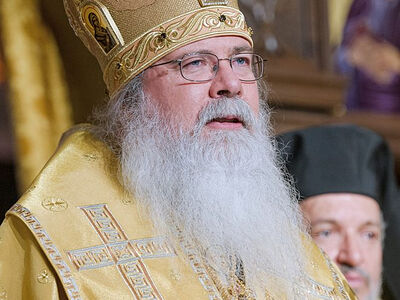 OCA Metropolitan and Chancery relocating to Washington, D.C.His Beatitude Metropolitan Tikhon of All America and Canada, who is the ruling hierarch of the Archdiocese of Washington, will thus reside within the territory of his diocese beginning in June.
OCA Metropolitan and Chancery relocating to Washington, D.C.His Beatitude Metropolitan Tikhon of All America and Canada, who is the ruling hierarch of the Archdiocese of Washington, will thus reside within the territory of his diocese beginning in June.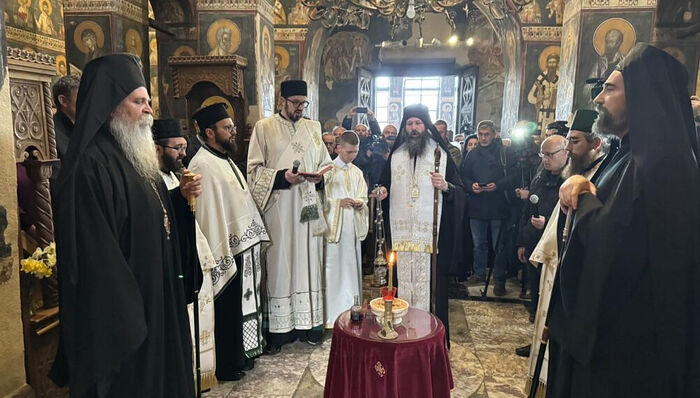
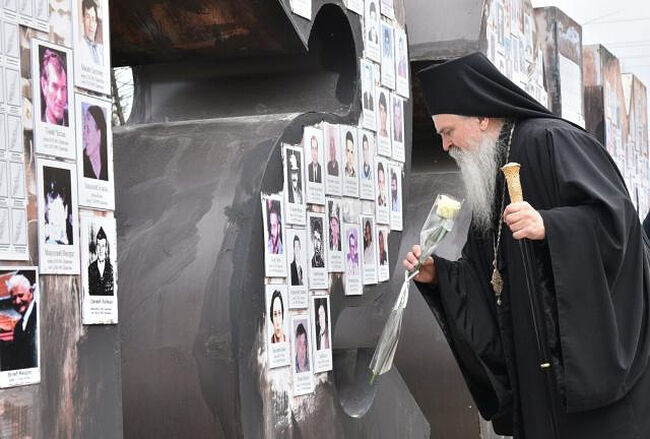
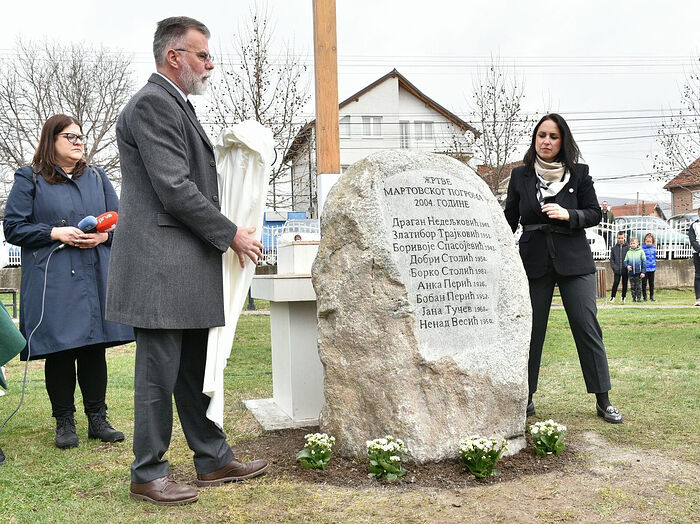
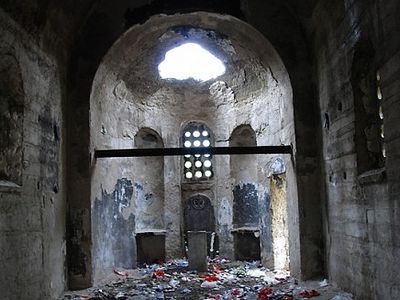 Ten Years Since March Pogrom Against Serbs In KosovoIt is ten years today since a pogrom was committed against Serbs in Kosovo-Metohija (KiM) and its order-givers and organizers from Albanian political and paramilitary structures have still remained unnamed and unpunished.
Ten Years Since March Pogrom Against Serbs In KosovoIt is ten years today since a pogrom was committed against Serbs in Kosovo-Metohija (KiM) and its order-givers and organizers from Albanian political and paramilitary structures have still remained unnamed and unpunished.